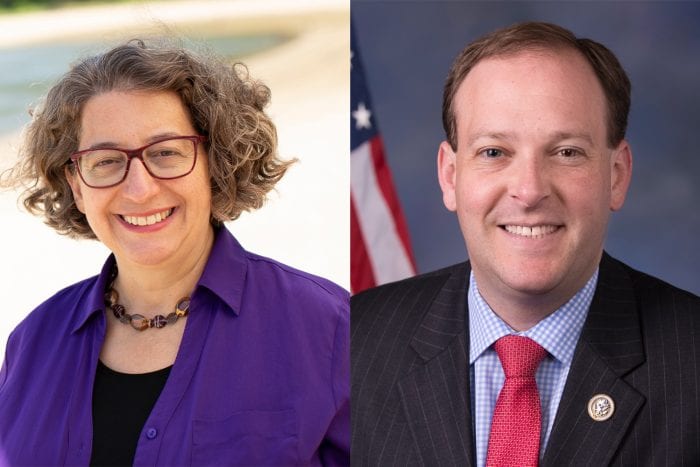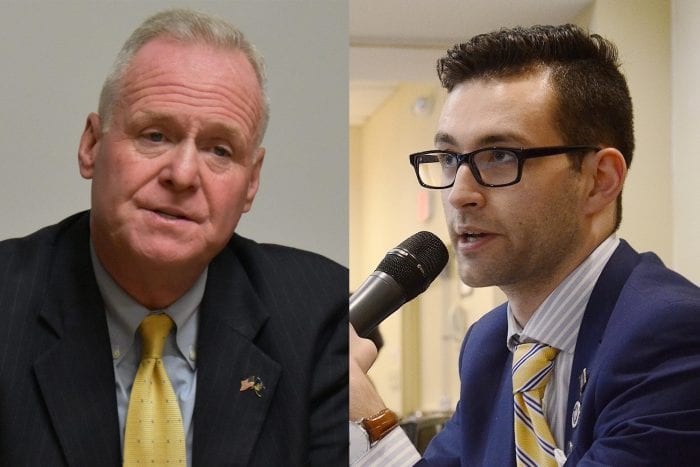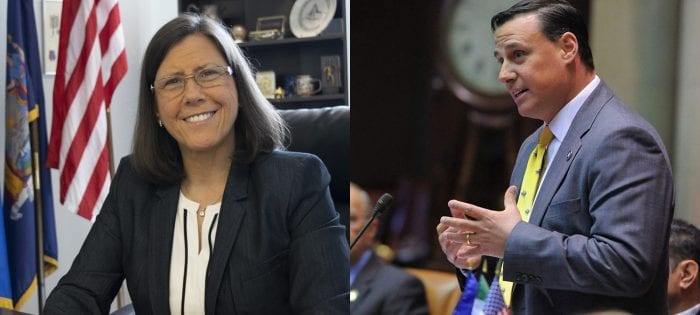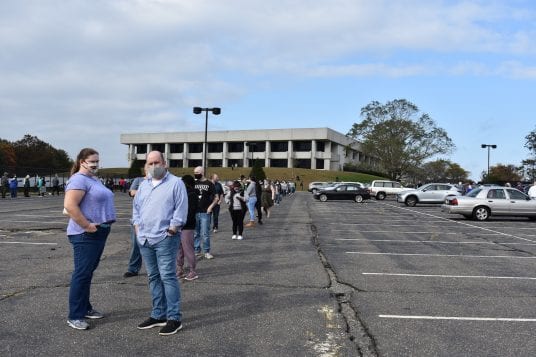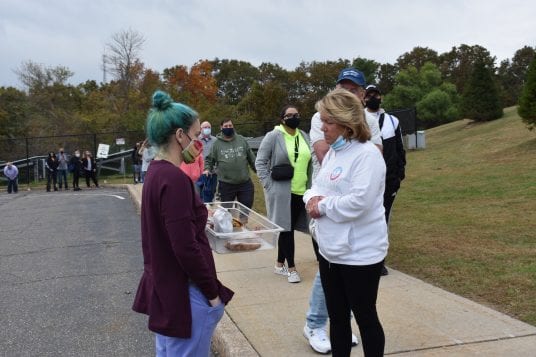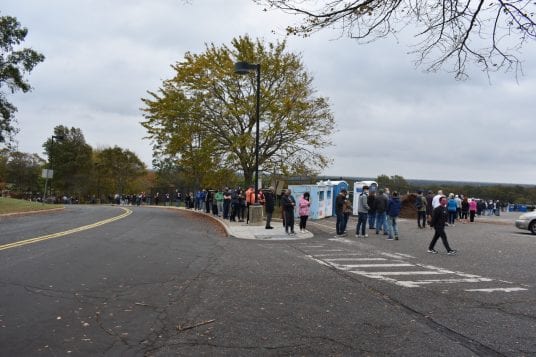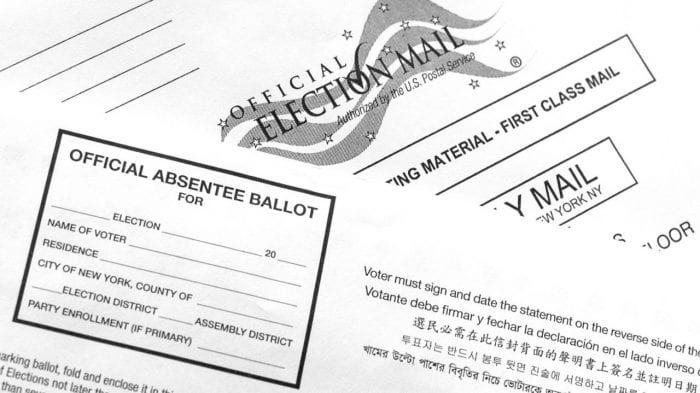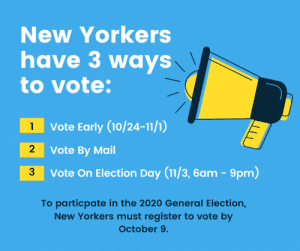Town of Huntington Councilman Ed Smyth (R) is looking to unseat state Sen. Jim Gaughran (D-Northport) in the 5th District. Smyth is currently serving his second term on the Town Board, while Gaughran is completing his first term as state senator.
The two participated in an Oct. 16 Zoom debate with the TBR News Media editorial staff to discuss their strategies regarding issues on the forefront of constituents’ minds, including the state’s actions during the pandemic, bail reform, water quality and more.
COVID Response
Both the councilman and senator agreed that the state’s response to the pandemic was appropriate, and the decision to give Gov. Andrew Cuomo (D) executive authority was warranted.
“There was no road map for this,” Gaughran said. “Everyone got hit over the head with this.”
The senator said he still remembers when he and his colleagues being briefed by Dr. Howard Zucker, New York State commissioner of health, back in March about the virus and how there was a need to move forward quickly and give Cuomo the power to make decisions quickly.
“We went through a lot of pain, and now we’re climbing back,” Gaughran said.
While the senator doesn’t feel businesses should open up fully all at once, he does want them to open as quickly as possible while remaining safe.
Smyth said he wants to help businesses open up quicker as he feels the emergency has now passed regarding the coronavirus and medical professionals have a better grasp on it. He said it needs to be recognized that every type of business has a different need, and that every person can decide to enter a business based on their own health conditions and fears.
“An electrical contractor has a very different need than a restaurant or bowling alley,” Smyth said.
Gaughran said his office has been working closely with businesses to identify their needs and wants. He has seen many working well with the new public health guidelines,
“I’m working every day with businesses in my district trying to help them reopen fully but safely,” he said. “But these decisions shouldn’t be made by politicians, they should be made by health officials.”
Smyth agreed that legislators need to sit down with health officials and let them weigh in. He said during the pandemic, some of the guidelines were applied unfairly and unevenly, and he said he didn’t understand why a person could go on a plane but not go to church or a gym.
“The quarantine is being applied unequally, while one size doesn’t fit all,” Smyth said. “The logic behind this, to me, doesn’t pass a common sense test.”
Gaughran said he has seen some unfairness, but he said with slight upticks in the infection rate, “we need to be safe.”
LIPA
A hot topic in the district has been the Long Island Power Authority’s Northport power plant. For years, many local residents have been waiting for a settlement with LIPA. The Northport power plant was taxed at $86 million, which LIPA said was overassessed, and the entity was seeking a court-order reduction which could have led to a 90% cut of taxes for the company. This in turn would have led the Town of Huntington being responsible for an $800 million refund to LIPA and school taxes would have been raised.
A recently proposed settlement, agreed on by the Northport-East Northport school district and the town, will cut LIPA’s taxes to $46 million from $86 million over the next seven years, lessening the burden a court-ordered reduction would have imposed.
Gaughran said the town should be obligated to make the final agreement accessible to residents.
“Until you get the final agreement, you don’t know exactly what it is,” he said.
Smyth said while the details of the settlement are still being worked out, all information so far has been made public. He said looking over the case, “it was begging to settle,” adding the power plant had been overly assessed and calling it “a dinosaur.”
“It would be great if it could be redeveloped into a far more efficient plant,” he said, adding that would be up to LIPA.
Education
Smyth said by nature he is a “debt hawk” and doesn’t believe in any government going into debt, but regarding school funding and with the COVID-19 impact, he said it may be appropriate to accrue some debt to ensure schools are funded properly. He said it’s also important to comb through the budget to find any abuse, citing a recent audit by New York State Comptroller Tom DiNapoli (D) that found millions of dollars of abuse from the Medicaid program.
“Every line item has to earn its way into the budget, but school funding should not be a negotiable item,” Smyth said.
Gaughran said he was behind a bill that made the 2% tax cap permanent in New York state, adding that he thought the new permanent law would be a “game changer.” He said he was also proud that he brought more school aid to his district than ever before during his first year in office. The state senator said if President Donald Trump (R) gets reelected he is concerned that the state won’t receive the federal funding it needs. Without the proper federal and state funding, it will add to the property tax burden and more people will leave the state.
“This is a very slippery slope,” Gaughran said.
Smyth pointed out that whether or not New York receives federal aid is not solely Trump’s decision, as the house and senate also vote on aid too.
“It’s not solely one person calling all the shots in Washington, D.C.,” Smyth said.
Bail Reform
Smyth said the bail reform bill that was passed in 2019 needs to be repealed, saying the results of the bill have been “disastrous.”
“No one should ever spend a night in jail for an expired registration, but low-level crimes were a Trojan horse that carried far more serious crimes into the bail reform bill,” Smyth said.
Gaughran said the bill was originally presented on its own merits but was blocked by many legislators which led to the governor inserting it into the budget. Gaughran said it was important to get passed the permanent 2 percent tax cap, which was also in the same budget, and he wasn’t going to walk away from schools.
“At the end of the day when you get to Albany you have to make some tough choices sometimes, and when you’re making those decisions you have to decide whether or not you’re going to vote on a budget based on what’s in it,” the senator said.
He added that he met with colleagues and law enforcement representatives after the bail reform bill was passed, and he and others immediately filed a bill to restore some violent offences back to allowing judges to set terms of bail.
Smyth said Gaughran should have been standing on his desk arguing the bail reform law. He calling any changes made to the reform “window dressing.”
Protecting Waterways
Both candidates discussed the importance of protecting the health of local waterways.
Smyth said he is a big proponent of homeowners being allowed to demolish debilitated homes and rebuilding a new one while keeping the current tax assessment as long as it is the same size. He said in doing so septic tanks and heating systems would be updated. He pointed out that what goes into the ground we eventually drink or wash into the harbors and bays. Providing an incentive to update septic systems would help to secure the health of local waters.
Gaughran said he recommends that the New York State Department of Conservation cracks down on New York City storm runoffs, which eventually flows into the Long Island Sound. He also is in favor of updating septic systems and working on ways to install sewer systems, water filtration systems and rain gardens. If he gets reelected, he said he has a plan to provide funding to municipalities to do just that.


